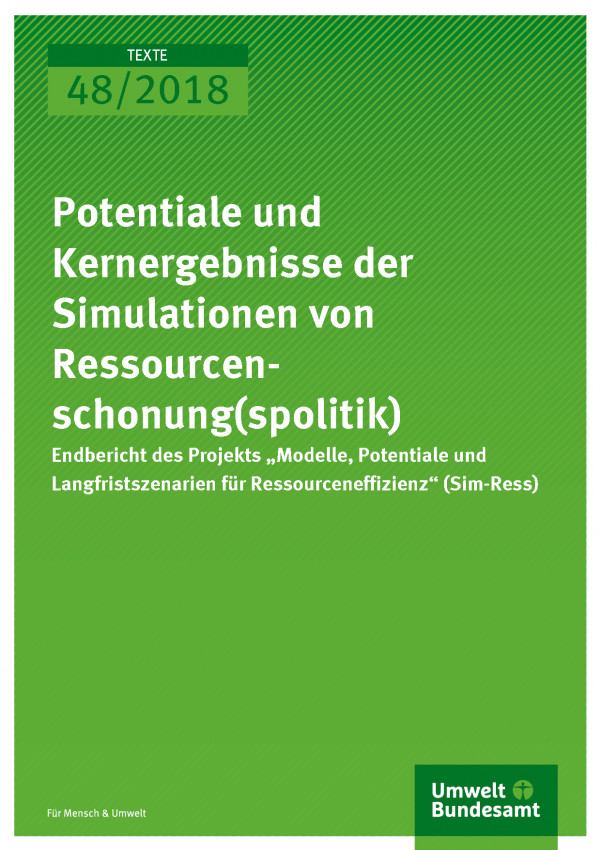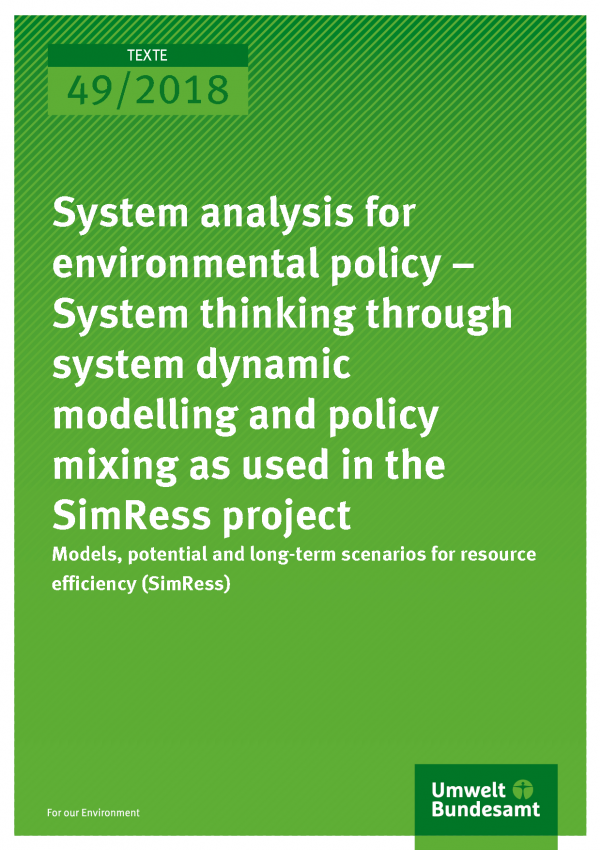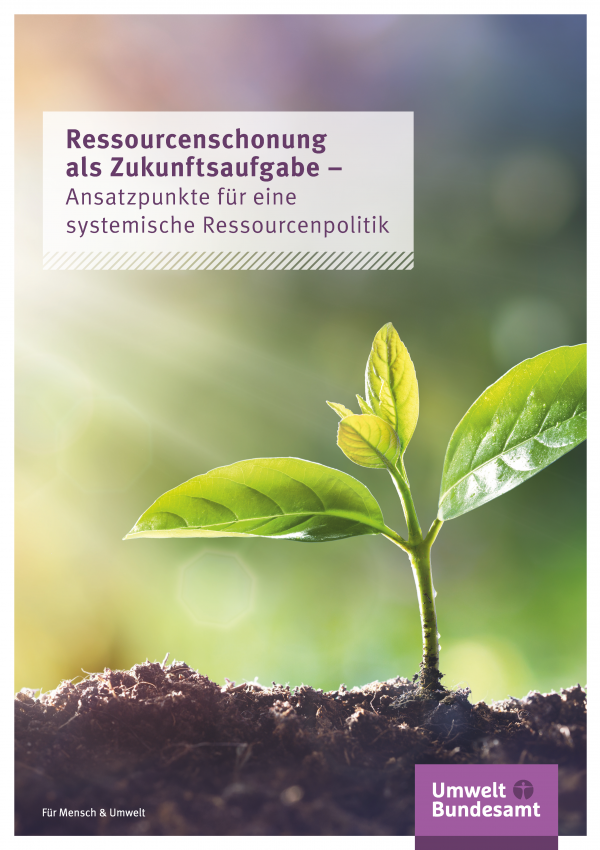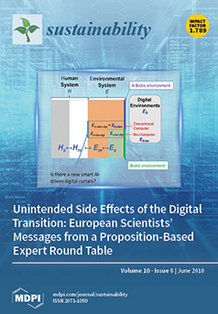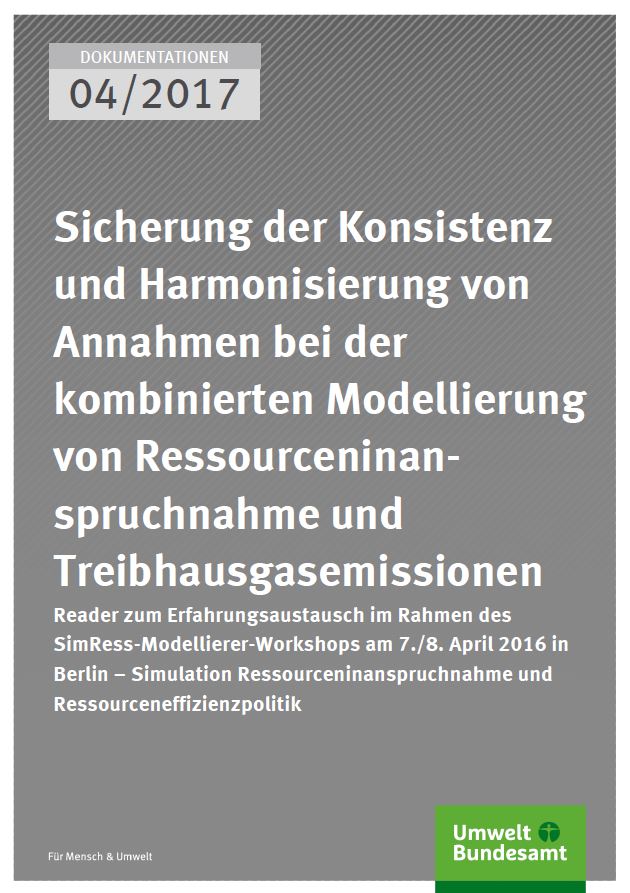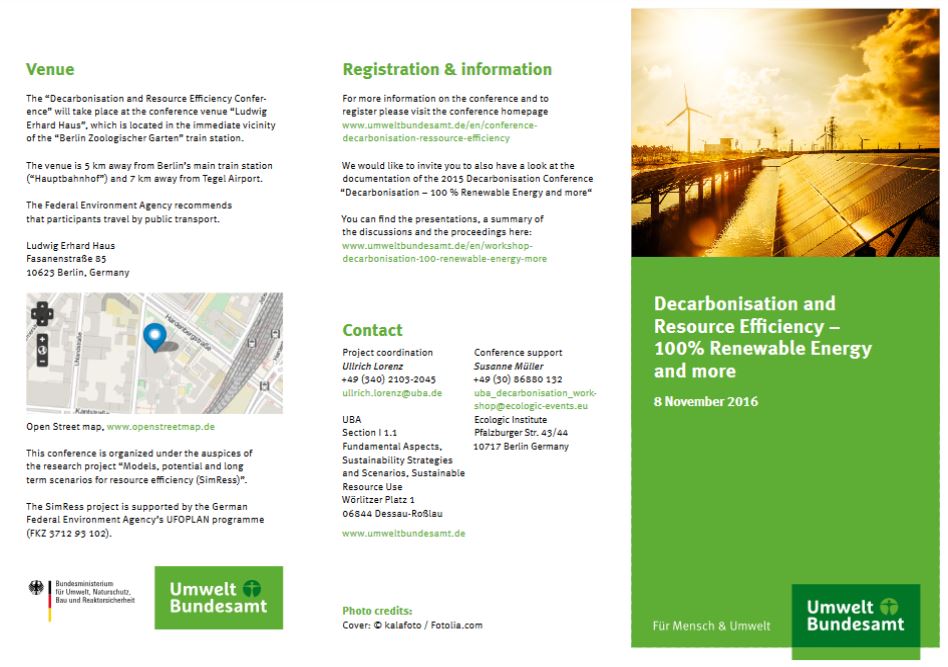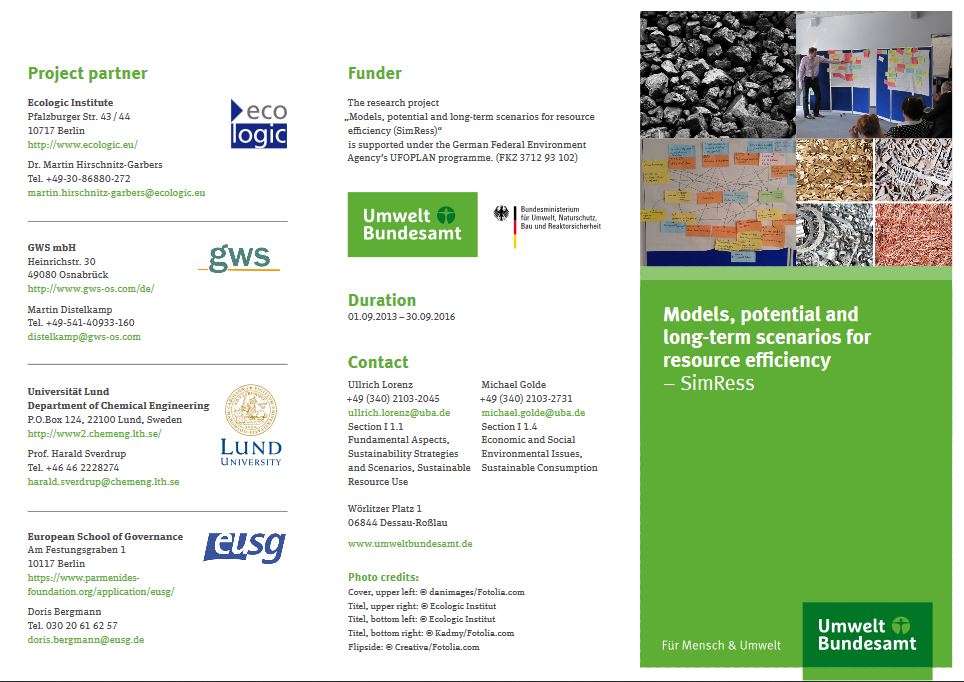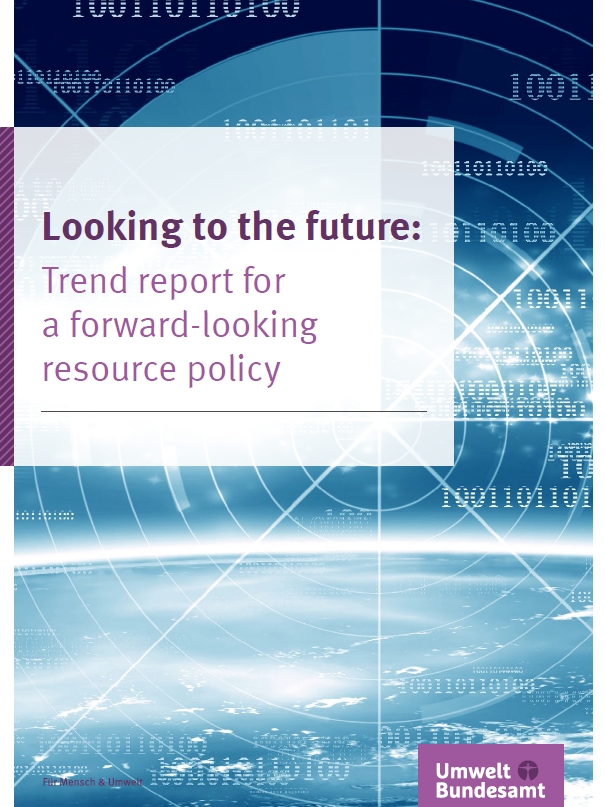Policy Mixing for Sustainable Resource Use
Conceptual Reflections from Participatory Policy Mix Design and Scientific Assessment
- Presentation
- Date
-
- Location
- Geneva, Switzerland
- Speech
-
Ullrich Lorenz (Federal Environment Agency)Dr. Martin Hirschnitz-Garbers
The World Resources Forum 2017 entitled "Accelerating the Resource Revolution" was held in Geneva from 24 to 25 October 2017. Ecologic Institute's Dr. Martin Hirschnitz-Garbers reflected on the conception and evaluation of policy mixes for resource conservation based on the experiences of the SimRess project. The presentation slides are available for download.
Human resource consumption is skyrocketing. A web of interrelated drivers (e.g. population growth, rising affluence, increasing consumption choices, diffusion of westernised consumption patterns) underlies increasing consumption. These interlinked drivers and the multitude of involved actors call for a systemic approach to policy making.
The concept of policy mixing may be an answer to this call. While applied in environmental policy in various contexts, policy mixes seem mostly designed by adding instruments, often without considering potential interactions and consistency. The German research project Models, Potentials and Long-Term Scenarios for Resource Efficiency (SimRess) tested the theoretical concept of policy mixing through participatory policy mix development, aided by causal loop diagrams, and model-based ex-ante assessments.
Theoretically, the concept requires to link long-term and short-term objectives to a set of carefully selected instruments, aiming to maximise synergies and minimise trade-offs between instruments. Designing and implementing a policy mix hence requires a long-term forward-looking roadmapping process and knowledge about the mix’ potential effects. This challenges scientific assessment and practical design and implementation of policy mixes.
Robustly assessing cumulative impacts of sequentially linked policy instruments is very demanding in terms of conceptual and computing power of those undertaking scientific assessment. Furthermore, scientific findings will always come with a degree of uncertainty, which good scientific practice demands being communicated transparently, while policy making typically calls for concrete proposals with (near) certainty. Hence, in the final decision making by democratically elected institutions, decision-makers must weigh different sources of knowledge and different options against each other in the context of political and socio-economic feasibility. This necessitates skills and capacities among decision-makers which do not thrive in a prevailing political economy of maximising chances to maintain power from one election term to the next – as this rewards short-termism and a focus on immediate benefits while discouraging long-term thinking with more distant benefits.



